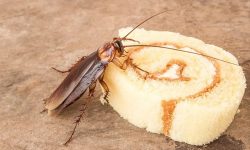Dogs have been human companions for thousands of years, and their diet has evolved alongside us. While domestic dogs share ancestry with wolves, their nutritional needs reflect a blend of carnivorous instincts and omnivorous adaptability. Understanding what dogs eat is essential for keeping them healthy, strong and energetic. Their diet directly affects digestion, immunity, skin condition, coat strength and overall lifespan. Because dogs depend on us for food choices, offering safe, nutritious ingredients is one of the most important aspects of proper pet care.
In the wild, dogs would rely on meat, organs, some plants, and scavenged foods. Modern dogs still benefit from high-quality animal protein but also thrive with balanced combinations of vegetables, fruits, grains and healthy fats. Not every human food is safe for dogs, and knowing which ingredients support their health—and which ones harm them—is crucial for responsible ownership.
This detailed guide explores 25 healthy foods dogs love most. These foods provide a mix of nutrients that support canine health, from strong muscles and bones to improved digestion and a shiny coat. Whether you want to diversify your dog’s diet or understand canine nutrition more deeply, this guide offers everything you need.
Understanding the Dog Diet

Dogs are classified as facultative carnivores, meaning they thrive primarily on animal protein but can also digest certain plant-based foods. Their teeth, jaw strength and digestive systems are optimized for meat, yet thousands of years of living with humans have made them capable of enjoying a broader range of foods. This flexibility helps them adapt to various environments and dietary conditions without health issues, as long as ingredients are safe and nutritionally balanced.
Despite this adaptability, dogs require specific nutrients: amino acids from protein, fatty acids from healthy fats, vitamins, minerals and controlled carbohydrates. Protein supports muscle development and tissue repair. Fats supply long-lasting energy and aid in nutrient absorption. While carbohydrates are not essential, they offer digestible energy and fiber that support bowel health. A well-rounded diet includes a combination of these elements.
Feeding dogs healthy whole foods can enhance their health significantly. Natural ingredients provide antioxidants, hydration, digestive support and immune-boosting nutrients often missing in highly processed foods. Understanding the healthiest options empowers dog owners to create safer mealtime routines and promote better long-term wellness.
25 Healthy Foods Dogs Love Most
1. Chicken
Chicken is one of the most popular proteins for dogs. It is lean, easy to digest and packed with amino acids that support muscle health. Many commercial dog foods use chicken because it provides high nutritional value without excess fat.
Cooked chicken is safe for dogs and makes an excellent addition to meals. It can be shredded, boiled or baked without seasonings to prevent digestive upset. Dogs often enjoy chicken mixed with rice during stomach sensitivity.
Chicken provides protein, B vitamins and minerals that maintain energy and support immune health. It’s a highly versatile food that fits into most canine diets.
2. Beef
Beef offers rich protein and essential nutrients that support overall canine health. It provides iron, zinc and B vitamins that contribute to strong muscles and red blood cell production. Dogs enjoy the strong flavor, making it a favorite source of animal protein.
Lean cuts of beef or ground beef cooked without seasoning are ideal for dogs. Avoid excessive fat or spices, which can cause digestive issues or pancreatitis. Beef broth (without onion) is also safe and enhances flavor.
A beef-inclusive diet can support active dogs, helping them maintain energy levels and recover after exercise.
3. Turkey
Turkey is a lean alternative to chicken and beef, offering high-quality protein with lower fat content. Dogs with sensitive stomachs often tolerate turkey well. It supports muscle development and provides essential amino acids.
Cooked, unseasoned turkey—especially breast meat—is safe for dogs. Avoid processed forms like deli turkey or sausages, which contain salts and preservatives. Ground turkey also works as a nutritious meal base.
Turkey provides nutrients that support metabolism, immune health and lean muscle development.
4. Salmon
Salmon is rich in omega-3 fatty acids, which promote shiny coats, reduce inflammation and support brain function. Dogs benefit significantly from these healthy fats, especially older dogs or dogs with skin allergies.
Cooked salmon is the safest way to serve this fish. Raw salmon can contain harmful parasites, so always cook thoroughly. Many dogs enjoy salmon mixed with kibble for added nutrients.
Salmon also offers high-quality protein, B vitamins and essential minerals that support long-term wellness.
5. Eggs
Eggs are nutrient-dense and highly digestible, making them excellent for dogs. They contain protein, fatty acids, vitamins and minerals that support coat health and muscle development. Dogs often find eggs flavorful and filling.
Scrambled or boiled eggs without seasoning are best. Raw eggs may contain bacteria and should be avoided. A few eggs per week enhance diet variety and nutritional balance.
Eggs also support healthy skin and immunity thanks to their vitamin-rich yolks.
6. Carrots
Carrots make a crunchy, low-calorie snack that strengthens teeth and provides natural fiber. Their high beta-carotene content converts to vitamin A, supporting vision and immune health in dogs.
Raw carrots help clean teeth, while cooked carrots offer softer textures for senior dogs. Carrots are also hydrating and safe to give daily in moderate amounts.
Vitamin-rich carrots improve skin health and support antioxidant defenses.
7. Green Beans
Green beans are fiber-rich, low-calorie vegetables ideal for overweight dogs. They offer plant-based nutrients, hydration and a satisfying crunch without contributing to weight gain.
Cooked or raw green beans (unsalted) are safe and nutritious. They can replace part of a dog’s usual kibble to help with portion control.
Green beans support digestion, weight management and nutrient absorption without adding unnecessary calories.
8. Sweet Potatoes
Sweet potatoes are a healthy carbohydrate source rich in fiber, antioxidants and vitamins. They support digestion and provide slow-releasing energy for active dogs.
Cooked sweet potatoes (without seasoning) are the safest option. They can be mashed, baked or sliced into soft treats. Dogs often enjoy their natural sweetness.
These vegetables help maintain gut health, improve stool consistency and support immune function.
9. Pumpkin
Pumpkin is widely recommended for digestive balance. Its soluble fiber helps regulate bowel movements, whether a dog has diarrhea or constipation. It’s safe, gentle and highly nutritious.
Plain canned pumpkin or cooked fresh pumpkin works well. Avoid pumpkin pie filling, which contains sugar and spices. A spoonful added to meals supports gut health.
Pumpkin also offers beta-carotene, potassium and hydration that benefit dogs of all ages.
10. Blueberries
Blueberries are antioxidant-rich, helping protect dogs from cellular damage and inflammation. They are low in calories and high in vitamins, making them excellent training treats.
Dogs enjoy blueberries fresh or frozen. Their small size makes them easy to portion and safe for most breeds. They also improve cognitive health in senior dogs.
Blueberries provide vitamins C and K, fiber and natural plant compounds essential for long-term wellness.
11. Apples
Apples offer fiber, vitamins and hydration with a crunchy texture that dogs love. They help freshen breath naturally and support digestive health.
Always remove seeds and core, which contain harmful compounds. Sliced apples are safe and refreshing for dogs, especially during warm weather.
Their antioxidants support immune health, while their fiber enhances gut function.
12. Bananas
Bananas provide natural energy and contain potassium, vitamins and fiber. They are soft and easy to digest, making them suitable for puppies and older dogs.
Because bananas are high in sugar, they should be fed sparingly. Sliced bananas or small frozen pieces make excellent treats.
Bananas contribute to heart health, bowel function and hydration.
13. Watermelon
Watermelon is hydrating and safe for dogs when seeds and rind are removed. It contains vitamins A, B6 and C, which support skin and immune health.
Dogs enjoy watermelon cubes during hot weather. Its high water content prevents dehydration and keeps dogs cool.
This fruit provides antioxidants and natural nutrients without excessive calories.
14. Oatmeal
Oatmeal is a gentle carbohydrate source ideal for dogs with sensitive stomachs. It contains soluble fiber that supports digestion and helps regulate bowel movements.
Cooked oatmeal without sugar or additives is best. It can be mixed with dog food for added nutrients.
Oatmeal also provides iron, B vitamins and antioxidants that enhance overall health.
15. Rice
Rice is commonly used in bland diets for dogs with digestive issues. It offers easily digestible energy and stabilizes the stomach.
White rice soothes upset stomachs, while brown rice offers more fiber and nutrients. Both are safe when cooked plain.
Rice helps restore energy, promote hydration and support gentle digestion.
16. Peanut Butter (Unsalted)
Peanut butter is a favorite dog treat packed with healthy fats and protein. It also contains vitamins E and B that support skin and immune function.
Only unsalted, xylitol-free peanut butter is safe. It can be spread on toys or used for training.
Peanut butter provides lasting energy and enrichment for dogs of all ages.
17. Yogurt
Plain yogurt provides probiotics that help regulate digestion and improve gut health. Dogs with mild stomach issues often benefit from small servings.
Choose unsweetened yogurt with active cultures. Avoid artificial sweeteners that can be toxic. Spoonful portions are ideal.
Yogurt also offers protein and calcium that contribute to strong bones and healthy immunity.
18. Cheese (In Moderation)
Cheese is flavorful and rich in protein and calcium. It makes excellent training treats and high-reward snacks for dogs.
Due to its fat content, cheese should be given sparingly. Low-fat varieties like mozzarella are safer options.
Cheese enhances appetite, supports strong bones and provides quick energy.
19. Broccoli
Broccoli delivers antioxidants, fiber and vitamins that support immune and digestive health. Dogs can eat broccoli raw or lightly cooked.
Portion control is important to avoid gas or stomach upset. Small florets are safest.
Broccoli boosts nutrient intake and helps dogs maintain a balanced diet.
20. Spinach
Spinach is nutrient-dense, offering iron, fiber and antioxidants. Dogs benefit from small amounts added to meals.
Cooked spinach is easier to digest. Raw spinach contains oxalic acid, so moderation is key.
Spinach supports heart health, vision and immunity.
21. Cucumbers
Cucumbers are low-calorie and hydrating, making them ideal for overweight dogs. They provide vitamins and natural water content.
Dogs enjoy cucumber slices as crunchy snacks. They’re refreshing during warm weather.
Cucumbers support hydration, digestion and weight control.
22. Strawberries
Strawberries are sweet, antioxidant-rich fruits that dogs enjoy. They contain fiber, vitamins and natural compounds that support immune health.
Fresh strawberries cut into small pieces are safest. Avoid sugary syrups or canned varieties.
Strawberries promote heart health, improve skin condition and provide natural energy.
23. Zucchini
Zucchini is gentle on the stomach and full of hydration and fiber. Dogs can eat it raw or cooked in small pieces.
It blends well with dog meals and provides nutrients without excess calories.
Zucchini supports digestion, improves hydration and enhances nutrient balance.
24. Sardines
Sardines offer omega-3 fats, protein and minerals essential for canine health. They support skin, joints and heart function.
Always choose sardines packed in water, not oil or salt. They can be mixed with regular dog food.
Sardines boost energy, reduce inflammation and support cognitive health.
25. Turkey Hearts or Chicken Hearts
Organ meats are highly nutritious, offering iron, taurine and B vitamins. Hearts are especially beneficial because they support muscle health.
Cooked hearts cut into small pieces are safe and flavorful for dogs. They should be fed in moderation.
Organ meats provide nutrient-dense energy that supports active, healthy dogs.
FAQs About What Do Dogs Eat
What do dogs eat most commonly?
Dogs primarily eat high-quality protein like chicken, beef or turkey, along with balanced grains and vegetables.
Can dogs eat human food safely?
Yes, but only certain foods. Lean meats, vegetables and fruits are safe, while chocolate, grapes and onions are toxic.
Do dogs need vegetables?
Vegetables provide fiber and nutrients that improve digestion and overall health.
Are fruits good for dogs?
Many fruits are safe and nutritious in moderation, such as apples, blueberries and bananas.
Do dogs need grains?
Not always, but grains like rice and oatmeal can support digestion.
Is cooked meat better for dogs?
Cooked, unseasoned meat is safer and easier to digest than raw.
Do dogs need vitamins?
Most dogs get vitamins from balanced diets, but supplements may help in certain cases.
How often should dogs eat?
Most adult dogs eat once or twice daily, depending on energy needs.
Can dogs eat dairy?
Some dogs tolerate dairy; others are sensitive. Moderation is key.
What foods are toxic to dogs?
Grapes, raisins, chocolate, onions, garlic, xylitol and alcohol are dangerous.
Final Thoughts
Dogs thrive when given a balanced diet filled with high-quality proteins, healthy fats, dog-safe fruits and vegetables. By understanding what dogs eat and choosing nutritious whole foods, you can support your dog’s digestion, energy, immunity and long-term wellness. Offering a variety of healthy foods keeps dogs excited about mealtimes and ensures they receive essential nutrients needed for a long, vibrant life. A thoughtful diet is one of the greatest gifts any dog owner can give.






